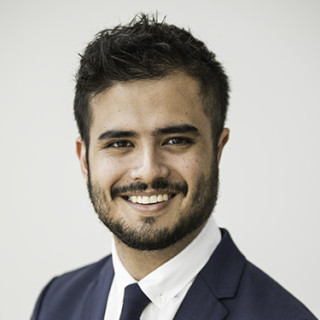 Most mornings during my clerkship year, I would stand in front of my bathroom mirror, exhausted but determined to see myself in my reflection; a semblance of inspiration, gratitude, something to remind me of who I was and what my intentions were for that day. During these morning rituals of reflection, however, I was often met with a feeling of dysphoria. Behind my eyes, I could see that my drive to be intentional in learning to care for others was clouded by my fear of meeting presumed expectations. What I hope to share with you is the space that I would go to, internally, to ease the anxiety I experienced when these illusions of fear started to get to me; when I worried that medicine was nothing more than a career game, driven by the burnout of those that once believed in its greater truths.
Most mornings during my clerkship year, I would stand in front of my bathroom mirror, exhausted but determined to see myself in my reflection; a semblance of inspiration, gratitude, something to remind me of who I was and what my intentions were for that day. During these morning rituals of reflection, however, I was often met with a feeling of dysphoria. Behind my eyes, I could see that my drive to be intentional in learning to care for others was clouded by my fear of meeting presumed expectations. What I hope to share with you is the space that I would go to, internally, to ease the anxiety I experienced when these illusions of fear started to get to me; when I worried that medicine was nothing more than a career game, driven by the burnout of those that once believed in its greater truths.
My first year of medical school, and moments thereafter, were defined by the many personal and academic hardships I experienced after coming out to my family as a gay man weeks before my white coat ceremony. Though in my first year I felt victimized at times by the timing of my coming out process, in retrospect, I was blessed by the timing and am beyond thankful for it today because it gave me the chance to learn. You see, like many experiences in life that challenge our sense of identity, coming out provided me an opportunity to understand myself, beyond the costumes I assumed as truths because of my race, gender, and age. In this way, coming out introduced me to myself, a limitless being of love and potential, with a renewed sense of purpose that would allow me to overcome my difficult circumstances. Coming out taught me that behavior, whether mine, my parent's, an institution's, or my patients', did not come from nothing. An ability to understand that allowed me the privilege to help a veteran with substance abuse disorder learn that accountability, through love and hope for himself, would be at the center of his healing. Coming out when I did gave me an unconditional humility. It gave me, for example, the courage to share my clerkship year difficulties with a senior resident who had a reputation for being cruel and distant to medical students. In that conversation, she shared her own struggles in medicine, and her appreciation for the space to be honest, regardless of the chaotic demands of our clinical service that day.
This ability to create spaces of vulnerability—by sharing and believing in our own—is not a skill set that I claim ownership of; it’s a skill that connects and is within us all. So, as you prepare to start a transformative year of learning from your patients, their families, residents, attendings, and fellow students, remember this space within you, which contains your truths and reasons for pursuing medicine. If you hold this space at your center, the growth you will experience throughout the next year will be wholly your own, and not just in response to presumed, external expectations.
Image by Yuri_Arcurs / gettyimages
Alex Azan is currently a fourth-year medical student at the Perelman School of Medicine at the University of Pennsylvania. He received his B.S. in Biology and Studio Art from Tufts University. As an aspiring primary care physician, his interests include urban health, narrative medicine, and urban design as a mechanism for population health intervention. He enjoys writing about the utility of narrative in medicine and hopes to continue sharing his experiences in residency.







